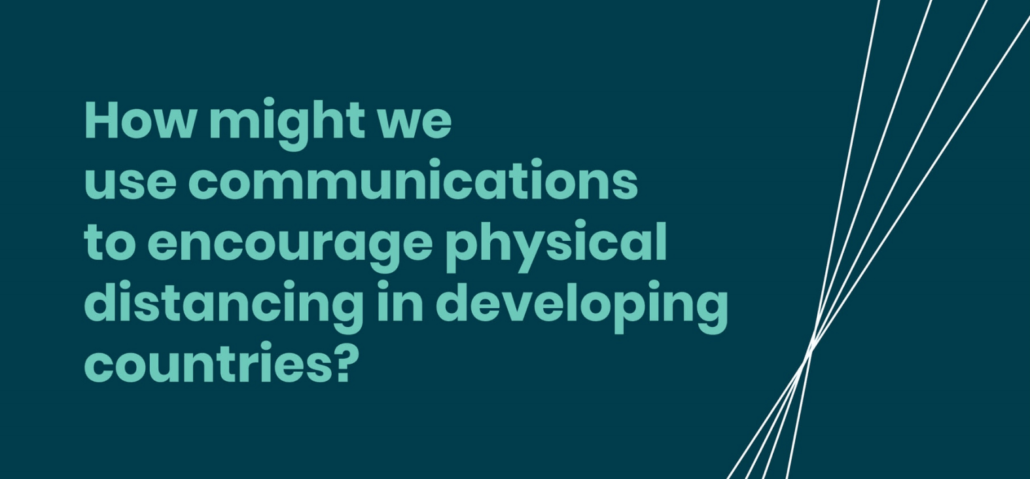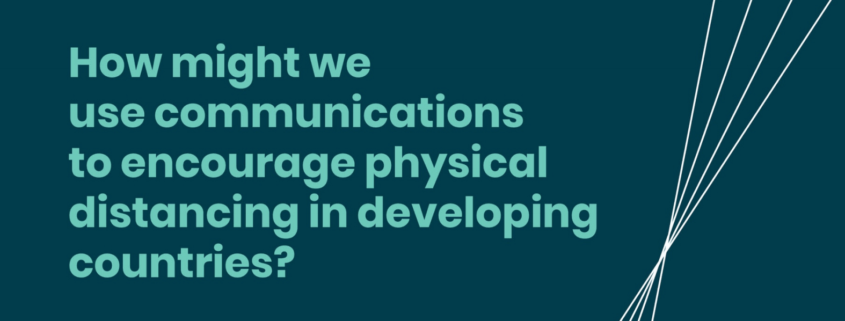How Might We Use Communication to Encourage Physical Distancing in Developing Countries
As countries around the world wrestle with the issue of how best to contain the virus, physical distancing (or social distancing, as it is often referred to) has emerged as one of the leading public health recommendations for limiting infection rates. Developed and developing countries alike are adopting this as a policy, as seen through a succession of state- and country-wide ‘lockdowns’ and ban on mass gatherings.
Physical distancing is essential in areas where public health systems are weaker and access to healthcare is more limited. And yet, population density in informal settlements, low literacy levels and poor WASH facilities mean that it is in precisely these areas that physical distancing is hard to achieve.
This guide is the product of a one-hour virtual working session, hosted by The Curve and attended by leading practitioners, donors and civil servants working in developing countries across the world. It outlines 9 pragmatic ways in which public health communications might promote both the understanding of, and adherence to, physical distancing measures in developing countries.
This document is not intended to be an exhaustive study or a complete answer to the question. Rather, it is a contribution to a vibrant sector-wide discussion including publications and perspectives by the Hygiene Hub and many others. The recommendations are a set of pragmatic advice based on the contributors’ experience that is intended to complement and invigorate the broader conversation.
Source: How Might We Use Communication to Encourage Physical Distancing in Developing Countries
Views 948





